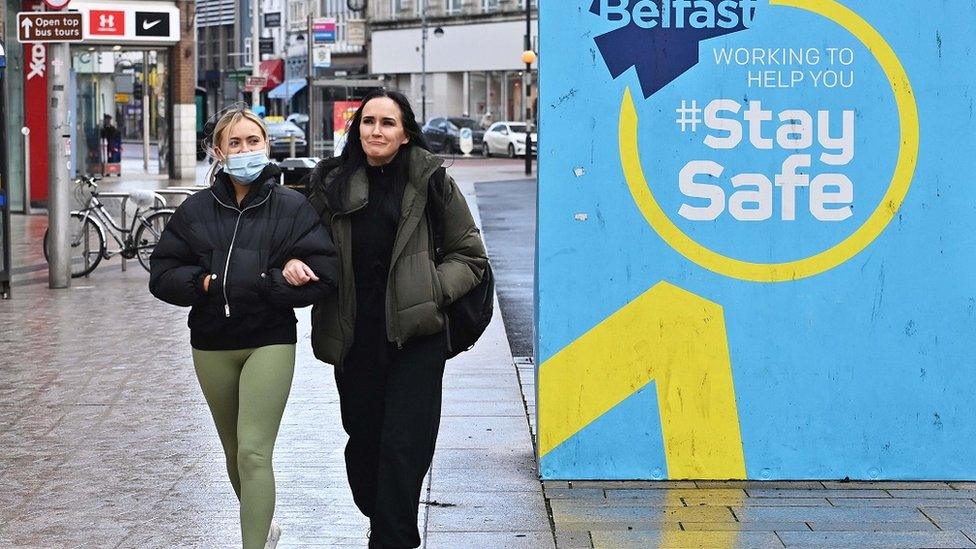Covid-19: Booster programme opens to over 18s in Northern Ireland
- Published
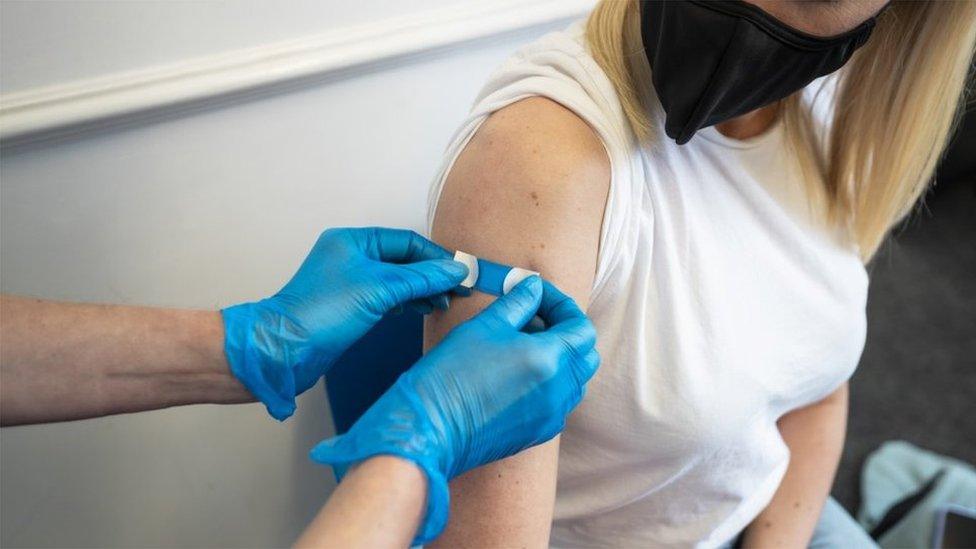
Northern Ireland's Covid-19 booster vaccination programme has opened to over 18s who received their second dose at least three months ago.
It comes as the chief medical officer says that Omicron could be the most dominant variant in NI by Christmas.
Earlier, Deputy First Minister Michelle O'Neill said that the Omicron variant of Covid-19 will hit Northern Ireland "like a tonne of bricks".
She warned of up to 30,000 new cases a day in the "worst-case scenario".
There are 1,281 confirmed Omicron cases in Northern but sources have told BBC News NI that the number is likely to be much higher.
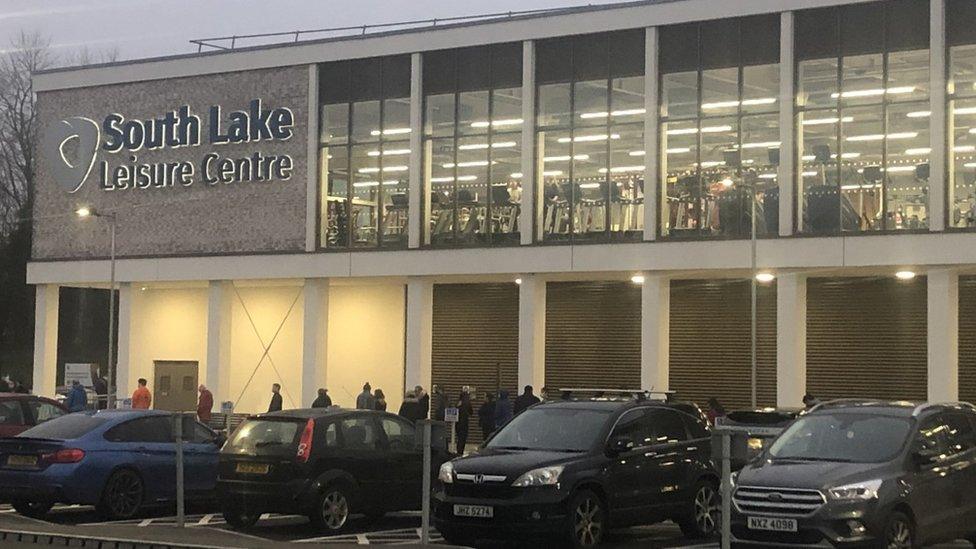
Lines were forming outside at South Lake Leisure Centre in Craigavon for vaccines
Chief medical officer Prof Sir Michael McBride warned that Omicron is spreading rapidly and urged those eligible to come forward for their booster Covid-19 jab, in a bid to curb the spread of the new Omicron variant.
Health trusts are operating walk-in booster vaccination clinic, with up-to-date information on each trust's social media platforms, the Department of Health said.
Over 30s can currently book a slot online, external, while bookings are expected to be made available for people in the 18 to 29-year-old age group in the next few days.
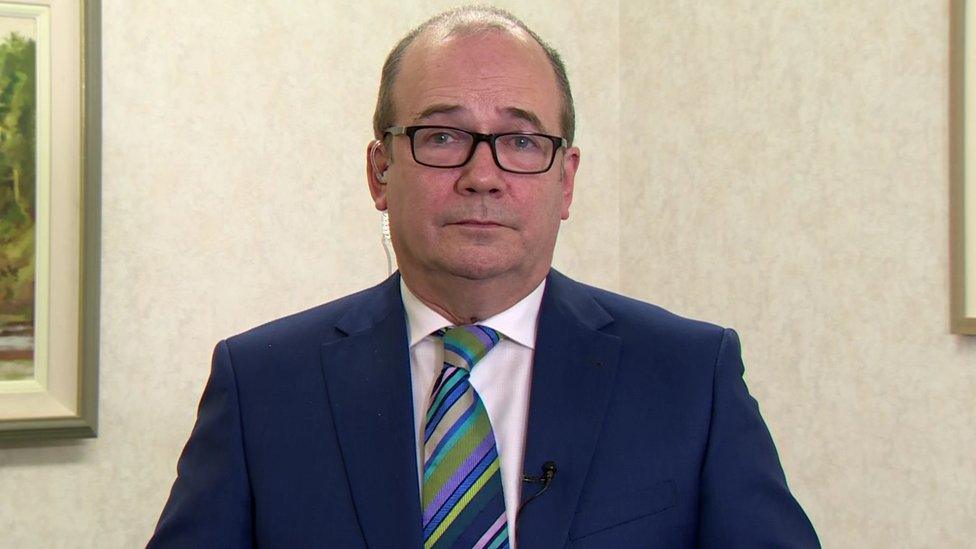
The chief medical officer said people "need to keep making safer choices in our daily lives"
He said he understood that people are worried about "potential effects of the booster in the run-up to Christmas".
"My advice to them is straightforward; the potential effects of Covid are much more concerning," he said.
"The vast majority of reactions to the vaccines are minor and short-lived, like having a sore arm for a day."
Speaking earlier on the BBC's Sunday Politics programme, Ms O'Neill said added the next few weeks could be the worst and most challenging period of the pandemic.
The Sinn Féin minister said ministers were working "around the clock" with public health officials to work out what measures need to be introduced and when.
But she said Stormont needed more money in order to support businesses through any potential new restrictions.
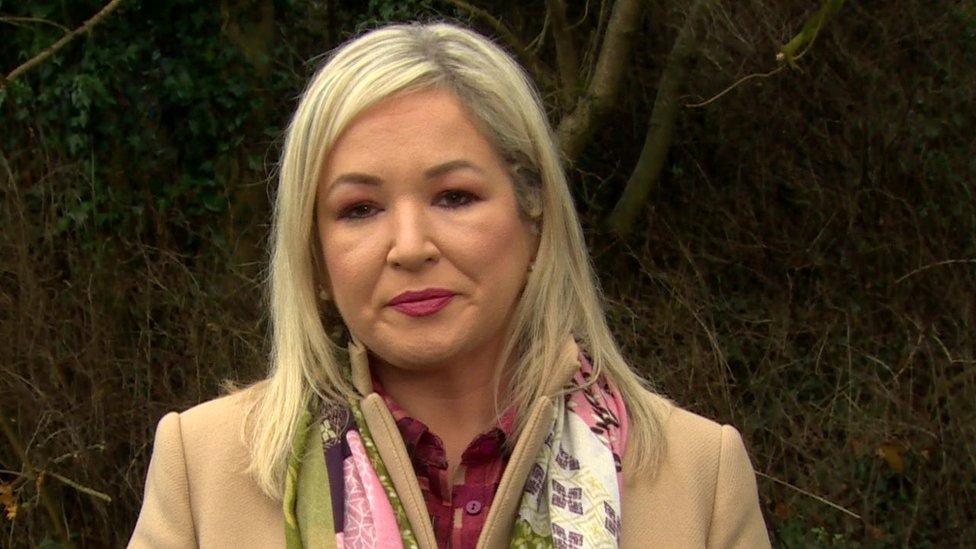
Michelle O'Neill said the next few weeks had potential to be the most challenging
She said the timing would be crucial and added that further information from health officials is expected on Monday which will help ministers understand the potential impact of Omicron on Northern Ireland's hospitals.
However, Ms O'Neill said she expected the volume of cases to be "overwhelming".
"We know that we will peak in the middle of January, we know that it's going to spread very rapidly, but what we don't yet know is the impact in terms of our hospital situation."

Allow X content?
This article contains content provided by X. We ask for your permission before anything is loaded, as they may be using cookies and other technologies. You may want to read X’s cookie policy, external and privacy policy, external before accepting. To view this content choose ‘accept and continue’.

Booster vaccinations for the 18 to 29-year-old age group were originally to made available across Northern Ireland from Monday, with appointment bookings for the age group available from Wednesday.
On Friday, ministers were warned there could be 11,000 Omicron variant cases each day by the end of December in a worst-case scenario.
Ms O'Neill and other ministers are meeting on Sunday, Monday and Tuesday informally, ahead of a planned executive meeting on Wednesday, when they are expected to announce details of how they plan to curb the spread of the variant.
However, the deputy first minister said action could be announced earlier than Wednesday if necessary.
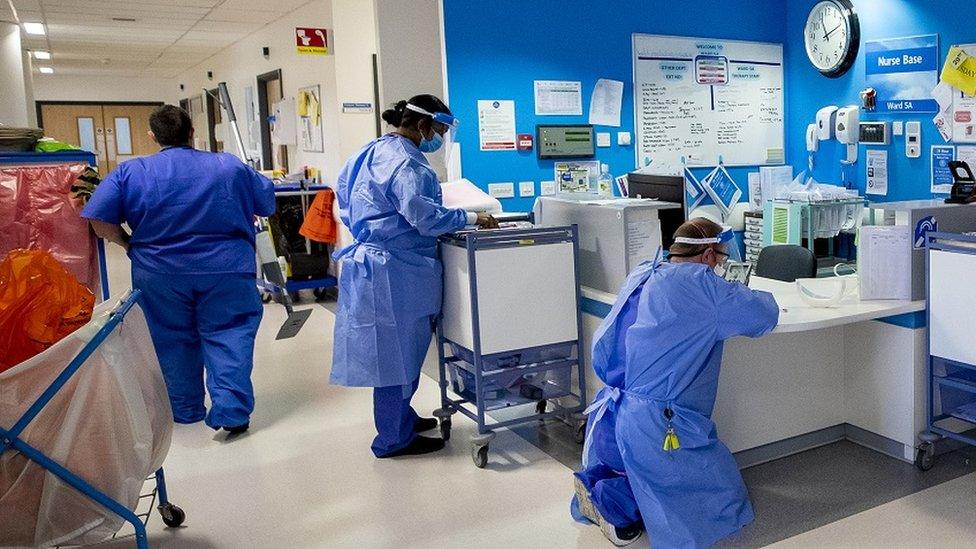
Hospitals in Northern Ireland could be under even more pressure in January, say health officials
She restated public health officials' advice that a "significant intervention" would be needed to mitigate against the spread of Omicron.
But she said the nature, the timing and the duration of that intervention was yet to be decided by ministers.
'You cannot do this without money'
Ms O'Neill added that "everything is on the table" in terms of the actions that might be required.
But she said there was "a danger of moving too early", in terms of imposing further Covid-19 restrictions.
"The public health officials' advice is to wait. We're very much being led by the health and scientific advice," said Ms O'Neill.
In terms of financial support for businesses which may face further disruption to their trade, the deputy first minister said she was meeting Treasury staff later on Sunday to make the case for more funding.
"We need money in order to support interventions because health [officials] are telling us that the booster programme in itself isn't enough," she said.
"We need to be able to support businesses if we have to intervene. You cannot do this without money."
On Sunday, two more deaths with Covid-19 were recorded by the Department of Health in Northern Ireland.
Earlier, the Republic of Ireland's Chief Medical Officer Dr Tony Holohan announced that more than half of new Covid-19 cases there are believed to be Omicron cases, meaning it is now the Republic's dominant variant.
From Monday, stricter Covid-19 restrictions will be in operation in the Republic.


The list of health trust vaccination clinics is available on trust websites at these links.
• Belfast Health and Social Care Trust, external
• Northern Health and Social Care Trust, external
• South Eastern Health and Social Care Trust, external
• Southern Health and Social Care Trust, external
• Western Health and Social Care Trust, external
More details of vaccinating pharmacies are available here:
• Community pharmacy booster COVID-19 vaccination service, external
- Published16 December 2021

- Published16 December 2021
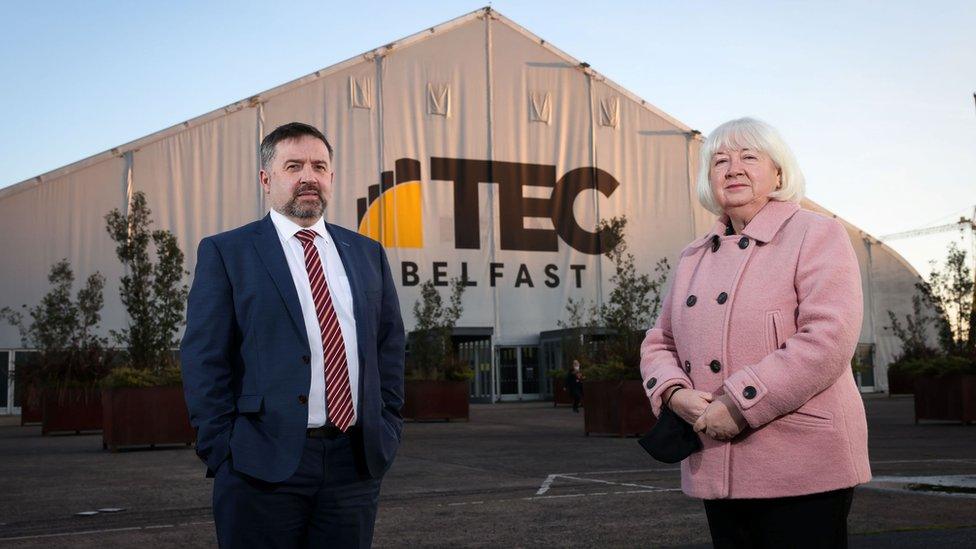
- Published16 February 2022
